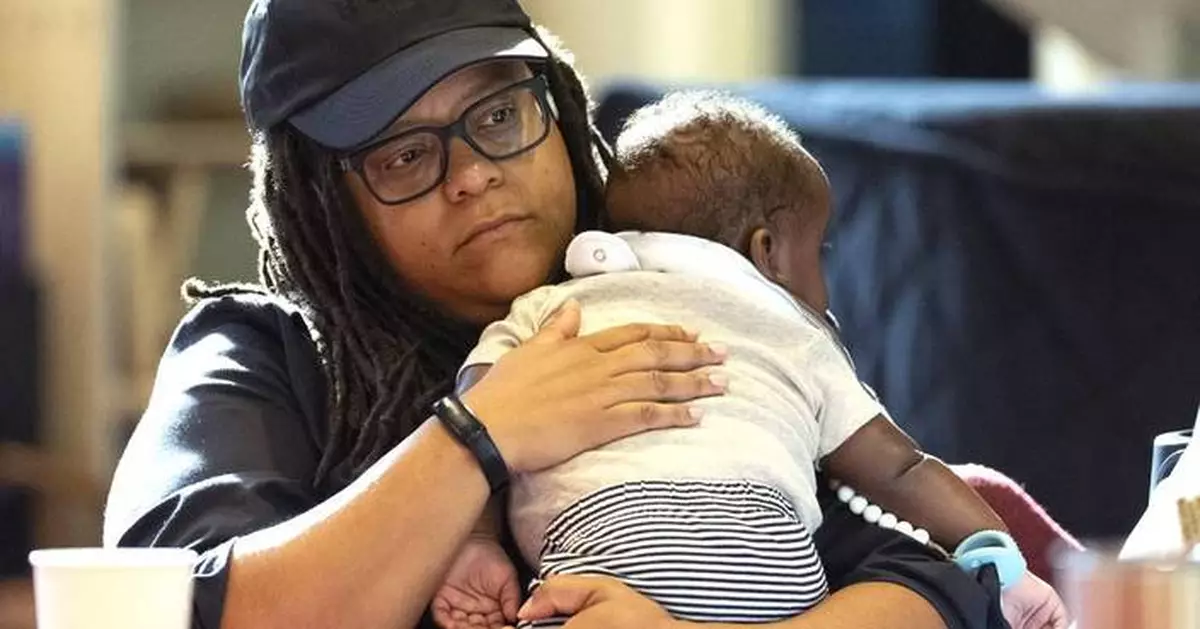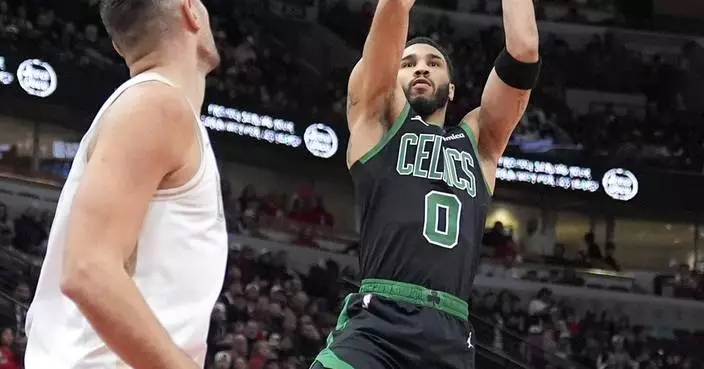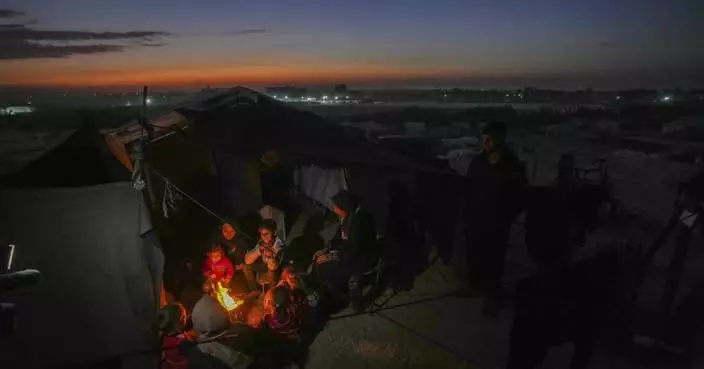Georgia Democratic Sen. Kim Jackson has two boys — a 3-year-old and a 4-month old. Her older son attends daycare but finding someone to watch him when Jackson is campaigning for reelection in the evenings and on weekends is a tricky scheduling and financial puzzle.
“It’s really hard to be accessible to your constituents if you’re not accessible during non-traditional daycare hours,” Jackson said.
Georgia started allowing candidates to use money from their campaign finances to pay for child care costs in 2023. Jackson is taking advantage of the policy for the first time this year after she and her wife adopted their eldest son last year.
“So much of me needing child care is about being able to do my job, which is to be with the people,” Jackson said. “These funds make that easier.”
Two thirds of states now allow candidates of any gender running for public office to use campaign funds to pay for child care expenses after the Federal Elections Commission approved the practice for federal candidates in 2018. While women with young children say its monumental to their campaigns and usage is growing, the number of candidates taking advantage of the policies remains relatively low and numerous complex barriers keeping mothers from running for office persist.
Despite making up half of the population, women hold about 32.8% of all statehouse seats, according to the Center for American Women in Politics. Advocates for allowing campaign funds for child care say it is one avenue to reach more equal representation in government and including mothers at the table is crucial for their perspective on policy ranging from the economy to parental leave.
Since 2018, more states have adopted policies permitting candidates to use campaign funds for child care, with 33 states now allowing it. Hawaii is the most recent, according to Vote Mama, a foundation that tracks the usage. Its political action committee arm supports left-leaning candidates.
CEO and founder of Vote Mama Liuba Grechen Shirley said legislation garners bipartisan support and she sees all 50 states approving the usage in the next five years.
Exact guidelines vary from state to state but most define qualified usage to cover expenses that are the direct result of campaign activities. Candidates use funds to pay for babysitters, daycare and preschool.
“This is how we get working people into office,” Grechen Shirley said.
But from 2018 to 2022, only 87 candidates used the funds in state and local races, Vote Mama found. The group does not have data yet for the current election cycle.
Grechen Shirley noted use grew each year. In 2018, about $10,000 of campaign funds were reportedly spent on child care, a number that grew to $225,567 in 2022. More women than men use the funds.
Only about 5% of state lawmakers are mothers to children under 18, according to the group.
Candidates of color spent 70% of the total funds reported in the four-year period. Democratic candidates have overwhelmingly spent the most, with Republicans spending just 11% of the total reported, Vote Mama found.
Some attribute limited usage to a lack of education on the topic. The more candidates use it, the more normalized it becomes, said Grechen Shirley, who originally asked the FEC for permission as a congressional candidate.
In West Virginia, Secretary of State spokesperson Mike Queen said his office isn’t aware of anybody taking advantage of a law allowing the usage since it passed in 2021. Queen said staff have made a concerted effort to educate candidates, county clerks and organizations like rotary clubs about the policy.
“This is just one way to reach out to men and women with children to say, ‘Hey listen, your input is important,'" he said.
The law’s lead sponsor, Democratic lawmaker Kayla Young, said the aging state needs the voices of parents when making policies, “particularly moms who in our society bear most of the child care load.”
Grechen Shirely said campaign mangers have at times advised women not to use campaign funds for child care to avoid political attacks, similar to how candidates who take a salary from their campaigns might be criticized.
“Women were always told not to talk about their motherhood and that's not just in politics but, frankly, in every field,” she said.
In years past, Texas legislators have made it a point to use campaign funds on child care to destigmatize it, “but none of us felt comfortable just digging all the way in,” said Democratic state Rep. Erin Zwiener. Uncertainty about the guidelines and fear of being reprimanded are why she thinks some parents just avoid the hassle.
Zwiener ran for office in 2018 while pregnant with her now 6-year-old daughter. She’s not using funds this year because her daughter is older and in school, but she used campaign funds for babysitting during the 2020 election cycle.
Candidates who do use campaign funds to pay for child care expenses, though relatively small in number, say it's extraordinarily helpful to cover costs that easily pile up over time.
Rep. Cara Pavalock-D’Amato, a five-term Republican in the Connecticut House of Representatives, said it was relatively easy campaigning with her infant son in 2018. But during the 2022 election, he was 4.
“Now that he’s gotten older and they want to go outside and do all that stuff, it does become definitely harder,” she said.
Pavalock-D’Amato said she probably won’t use the funds this year because she’s running unopposed. But during 2022, she relied on campaign funds to cover child care on weekends when she was door-to-door campaigning, spending about $500 to $1,000. She supported authorizing the use when it passed in 2021.
“I know there’s some people who voted against it, and I said, ‘You guys must not have kids,’” she said.
Pushback and progress have taken many forms. In Connecticut, Caitlin Clarkson Pereira ran for state representative in 2018 when her daughter was 3, but her request to use campaign funds for child care was denied by an all-male commission that argued it was a personal expense. Pereira appealed the decision and later won in 2020, though she did not win her election.
Georgia Democratic Sen. Nabilah Islam gave birth in July, four weeks early, and is considering using campaign funds to care for the newborn starting around October as she runs for reelection in suburban Atlanta. Islam said the state should have implemented the policy passed last year “decades ago.”
Challenges for mothers seeking public office don’t stop once elected. Legislating often requires commutes across big states and working obscure hours. Few make full-time salaries.
Michigan Sen. Mallory McMorrow was the second woman to give birth while serving in the Senate. The state doesn't allow the use of campaign funds for child care and the Senate does not have a parental leave policy, but McMorrow decided to take a leave after giving birth to her daughter shortly after the start of the legislative session.
“It was a calculated political risk,” McMorrow, a Democrat, said.
McMorrow navigated breastfeeding and postpartum depression while attending session. McMorrow said she would support using campaign funds while in office to pay for child care, which could be tracked along with other financial records kept by public officials. Twelve states have authorized such use, according to Vote Mama.
“It’s not like your child goes away when you get elected,” McMorrow said.
Associated Press writers Charlotte Kramon in Atlanta, Susan Haigh in Hartford, Connecticut, Leah Willingham Charleston, West Virginia, and Nadia Lathan in Austin contributed to this report.
The Associated Press’ women in the workforce and state government coverage receives financial support from Pivotal Ventures. AP is solely responsible for all content. Find AP’s standards for working with philanthropies, a list of supporters and funded coverage areas at AP.org.
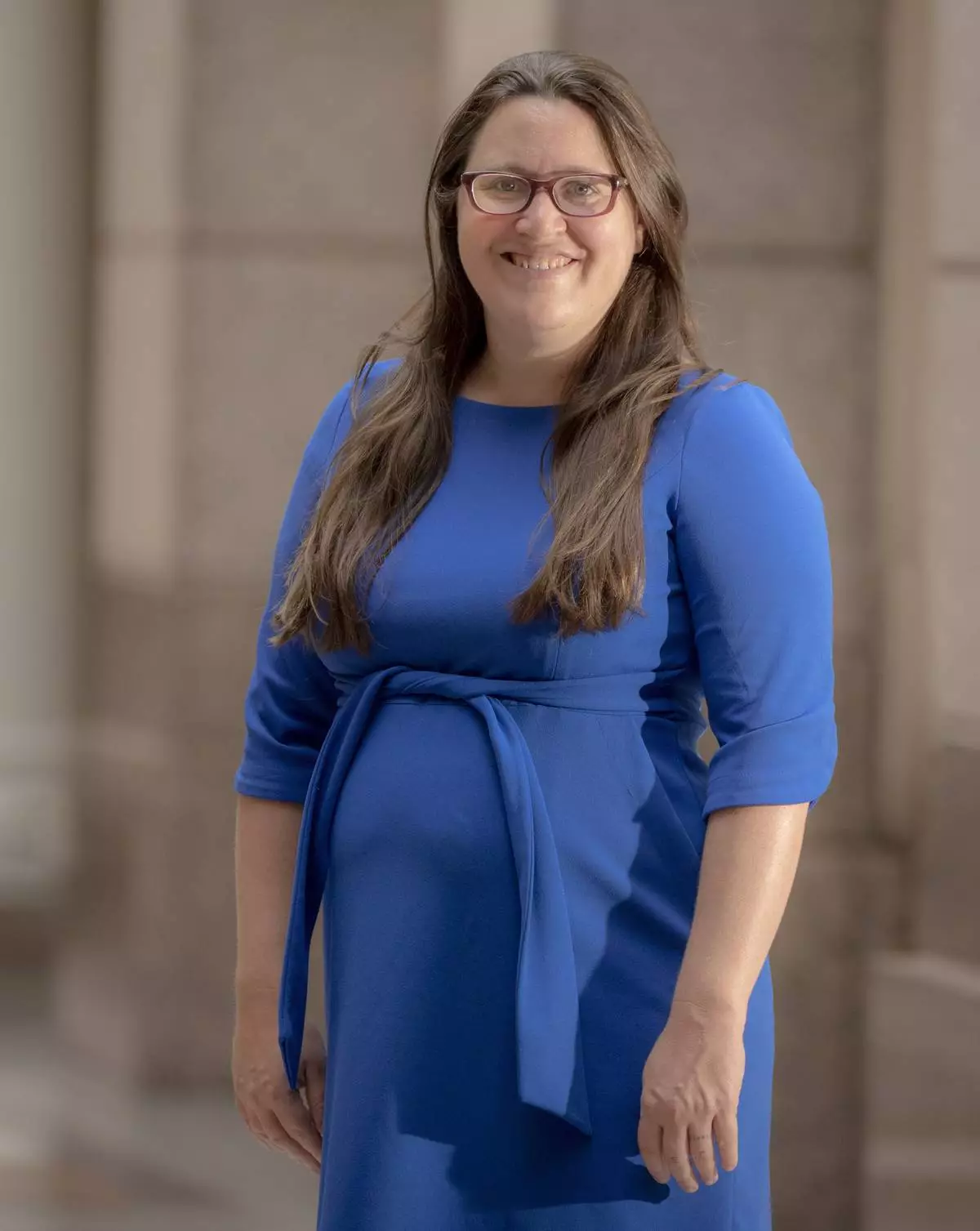
Erin Zweiner, a member of the Texas House of Representatives, poses for a photo at the State Capitol in Austin, Texas, Friday, Sept. 6, 2024. (AP Photo/Michael Thomas)
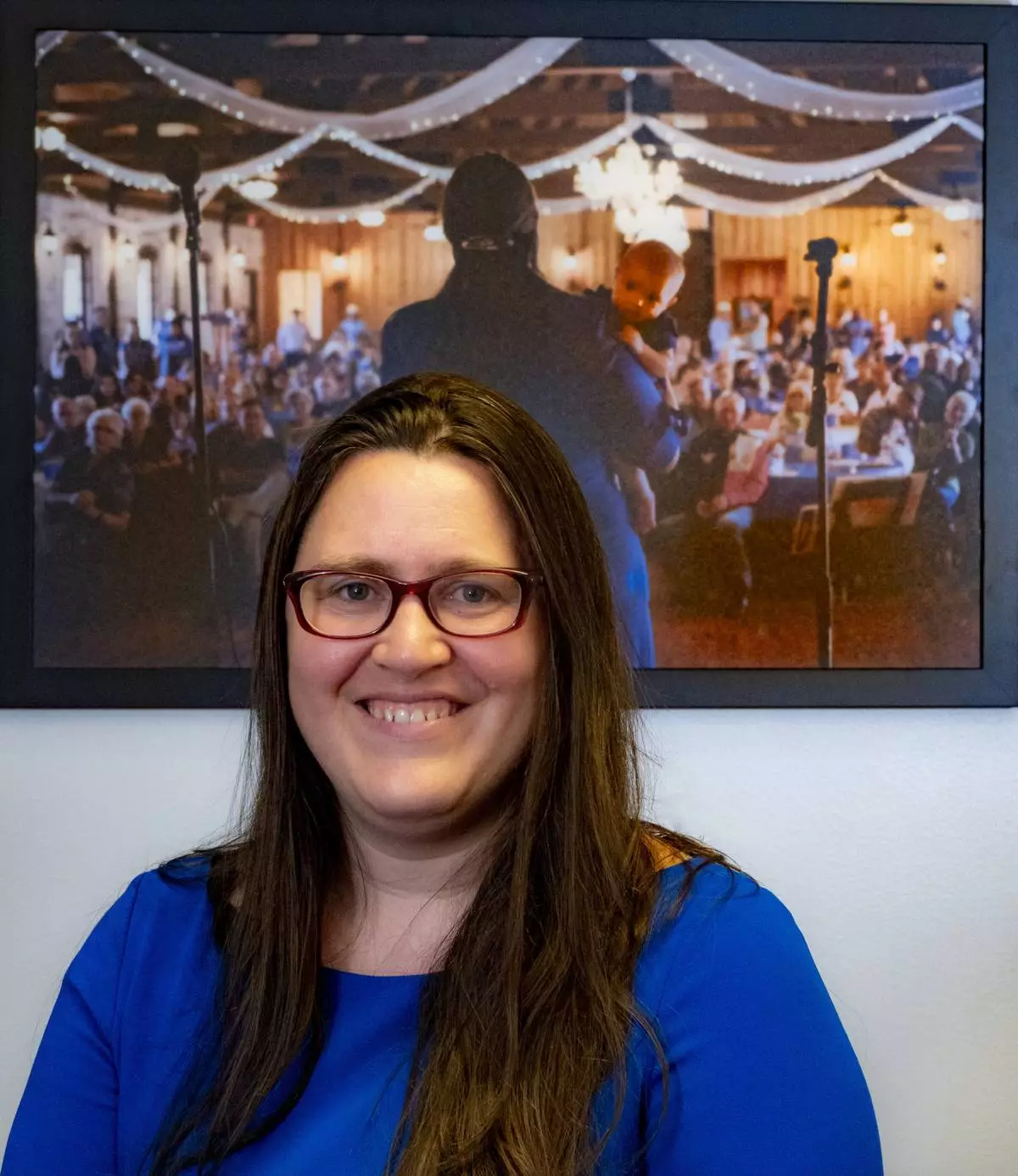
Erin Zweiner, a member of the Texas House of Representatives, poses for a photo in her office in front of a photograph with her daughter, Lark, taken at a political event, Friday, Sept. 6, 2024, in Austin, Texas. (AP Photo/Michael Thomas)
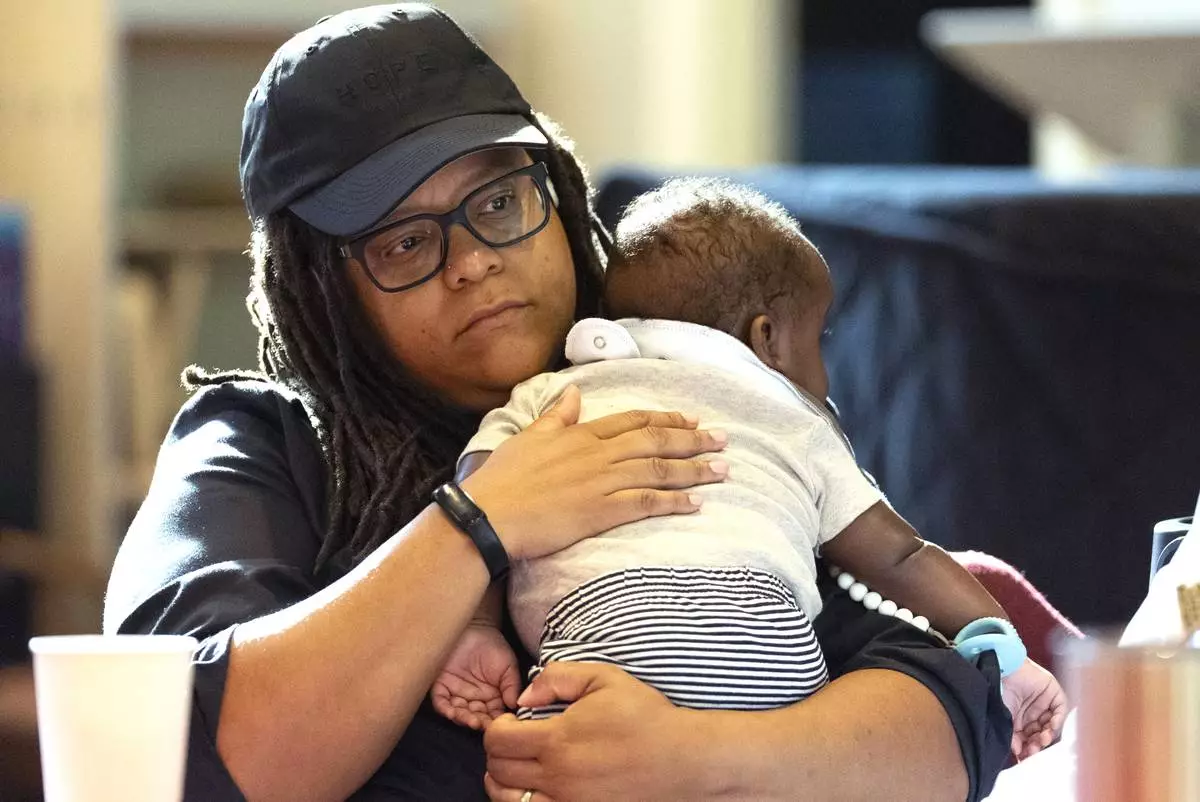
Georgia State Sen. Kim Jackson holds her son as she takes part in a reproductive health town hall meeting at Neighborhood Church Thursday, Aug. 29, 2024, in Atlanta. (AP Photo/John Bazemore)


